With smiles and pride in their eyes, they call themselves “Extensionistas.” They are the second group of sisters in our U.S.-Latin American Sisters Exchange program, and these 44 trailblazing women religious recently earned their bachelor’s or master’s degrees from St. Mary’s University of Minnesota in May.
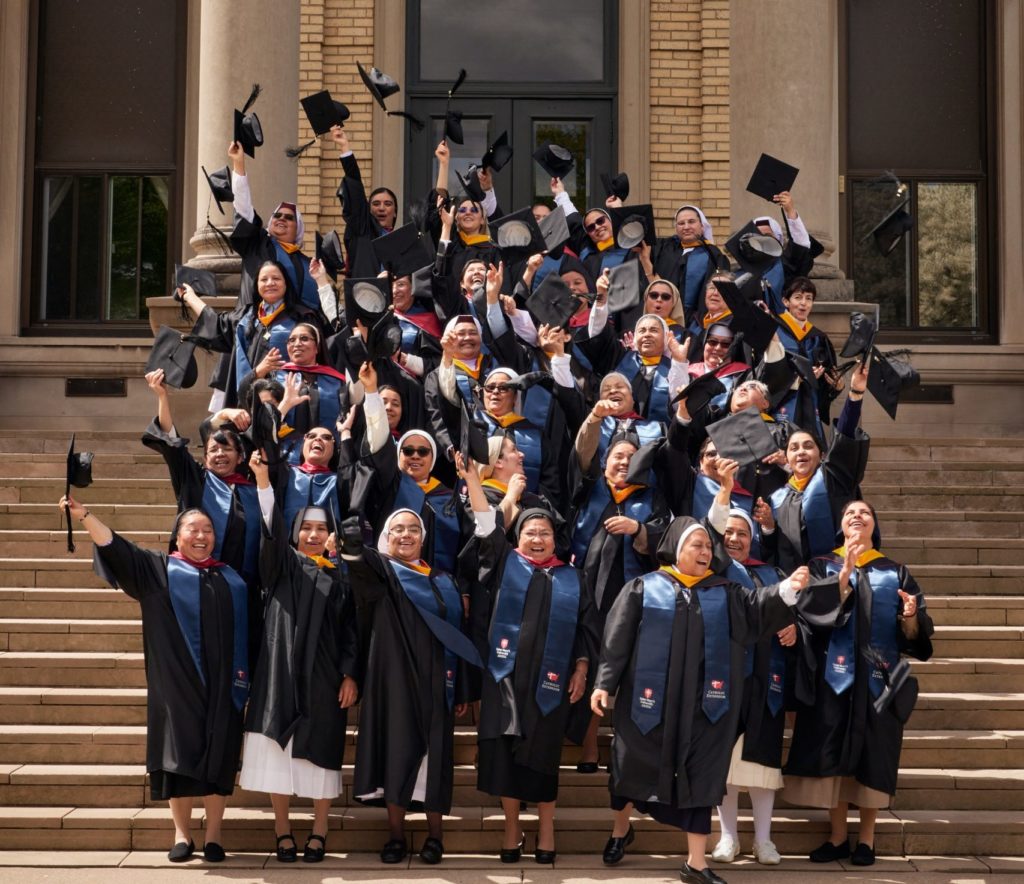
The program invites Catholic sisters from religious congregations founded and based in Latin America to pursue a university degree as they create new ministries in Extension dioceses among the poor.
Twenty-eight sisters earned bachelor’s degrees in health care and human services management, and 16 sisters earned master’s degrees in integrated studies with focus areas in human services and pastoral care.
The sisters collectively touched tens of thousands of lives in their ministries across the poorest regions of America over the past five years. The dots in the map below show where the 150 sisters in the program have served since its inception:
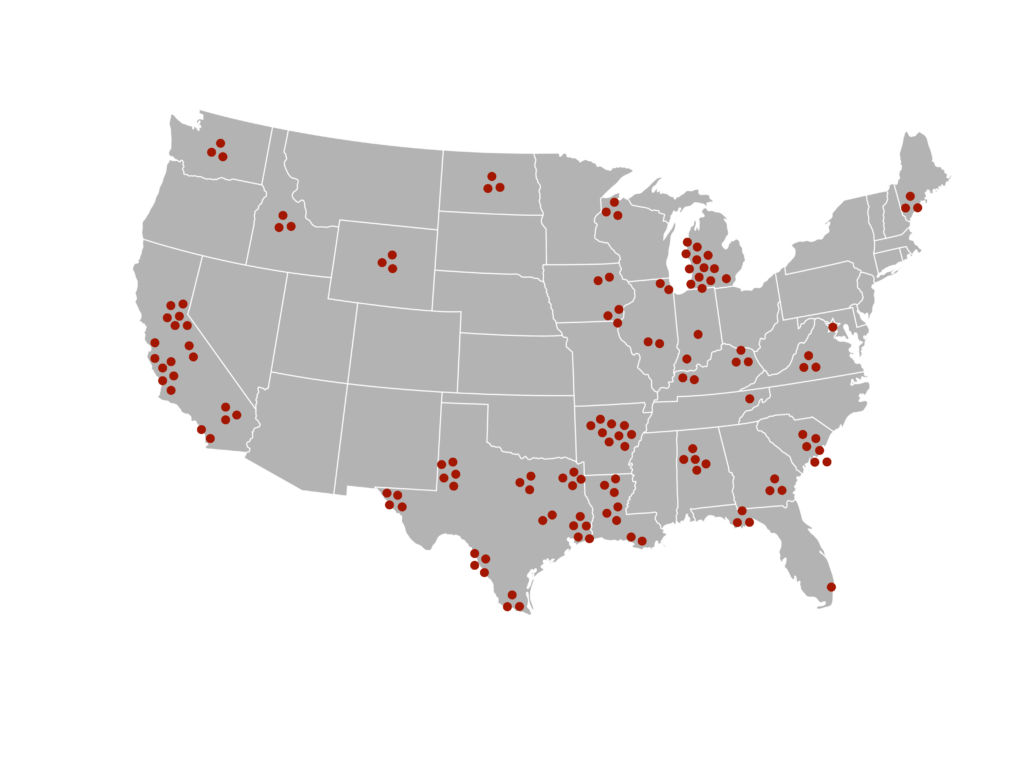
This group dedicated long hours, travel and intense studying to complete their degrees. All graduates will now deploy their newfound knowledge, skills and confidence in their ministries to serve hundreds of thousands of the poorest among us—benefiting all of society. Their success is our success!
Below, we highlight 10 of the graduating sisters and the communities they have reached.
Sisters Antonia Sánchez Núñez, Zuly Cárdenas Carreón and Ana Luisa Vázquez López, Eucharistic Missionaries of the Infant Jesus of Our Lady of Fatima, served in the Diocese of Sacramento.
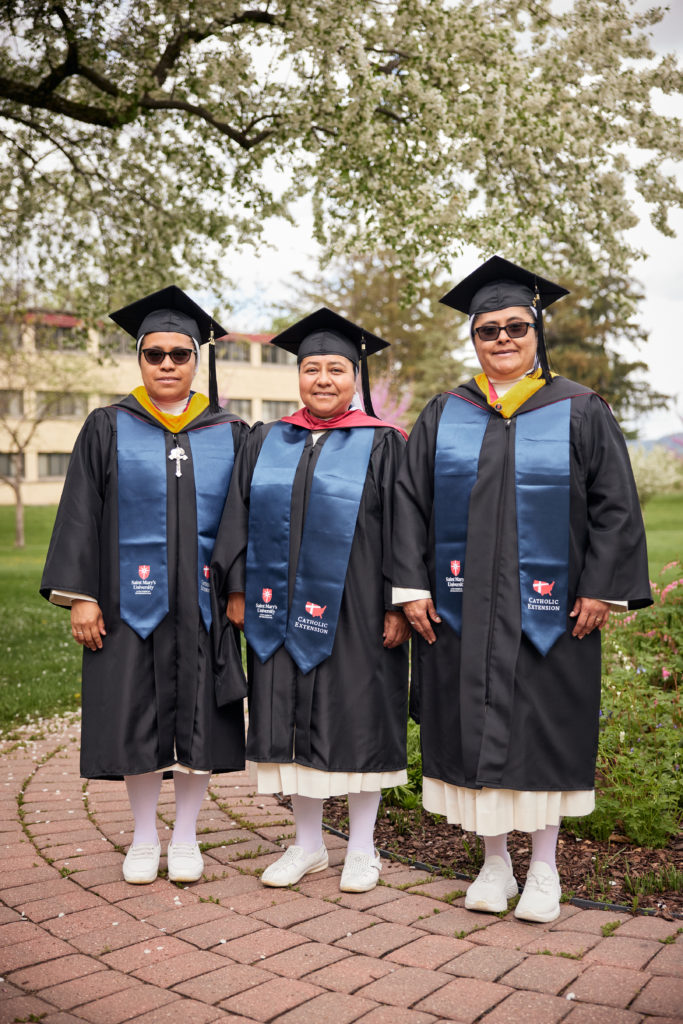
During their time in northern California, these sisters from Mexico organized over 700 gatherings. This included workshops like Mujer Nueva (New Woman) that focused on mental health, leadership, entrepreneurship and promoting self-esteem.
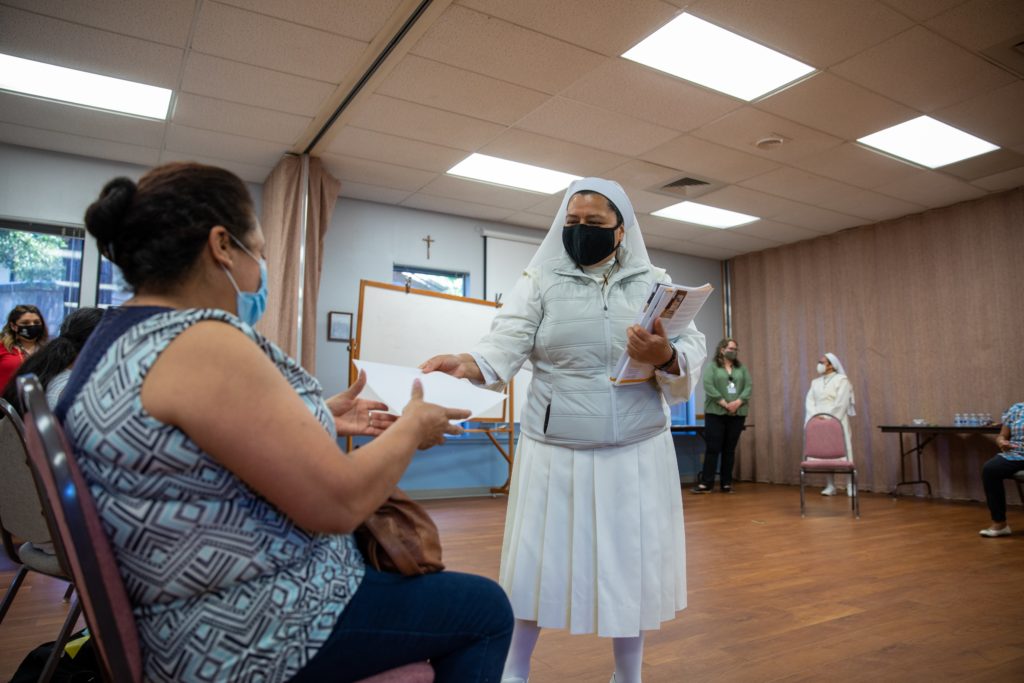
They also worked with Northern Valley Catholic Social Service, which provides health education and services to those in need. The sisters offered life-changing resources to vulnerable families, including food pantry distribution, mental health support, disaster relief, housing and connection to immigration legal services.
Upon graduating, Sister Zuly said, “Thank you, Catholic Extension, for this important experience of accompanying our communities and being accompanied by you. God bless your work. … It is an honor to be an Extensionista.”
Sister Gabriela Ramírez, a Benedictine Sister of Cullman, Alabama, has been serving in the United States for three decades.
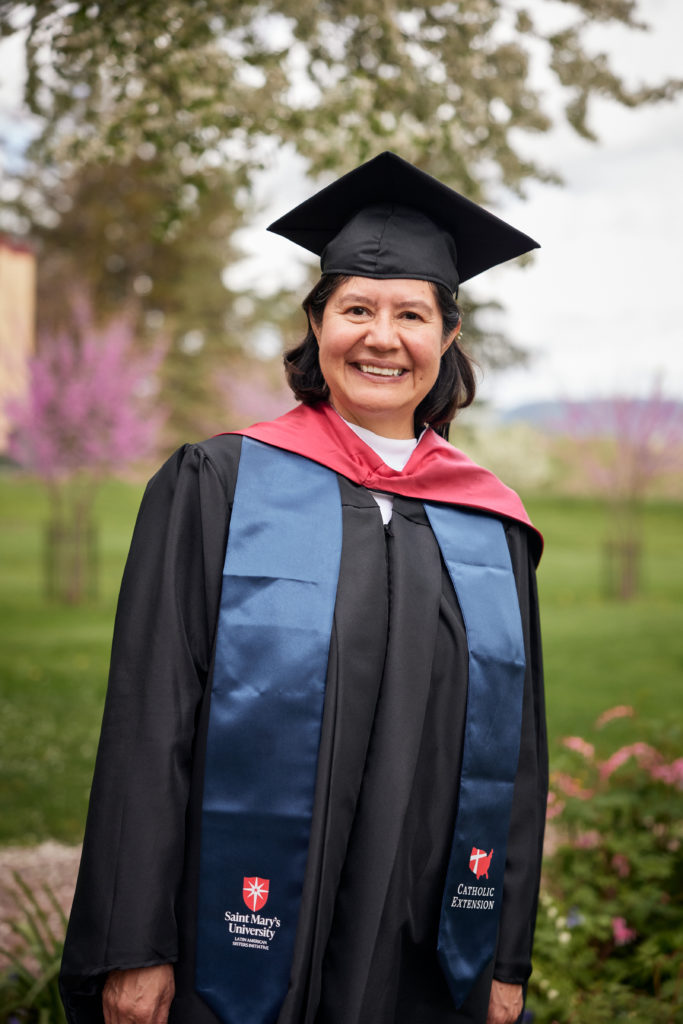
She is the director of emergency and disaster relief at Catholic Social Services in the Diocese of Birmingham. In this ministry, she provides the necessary tools for individuals and families to improve their situations.
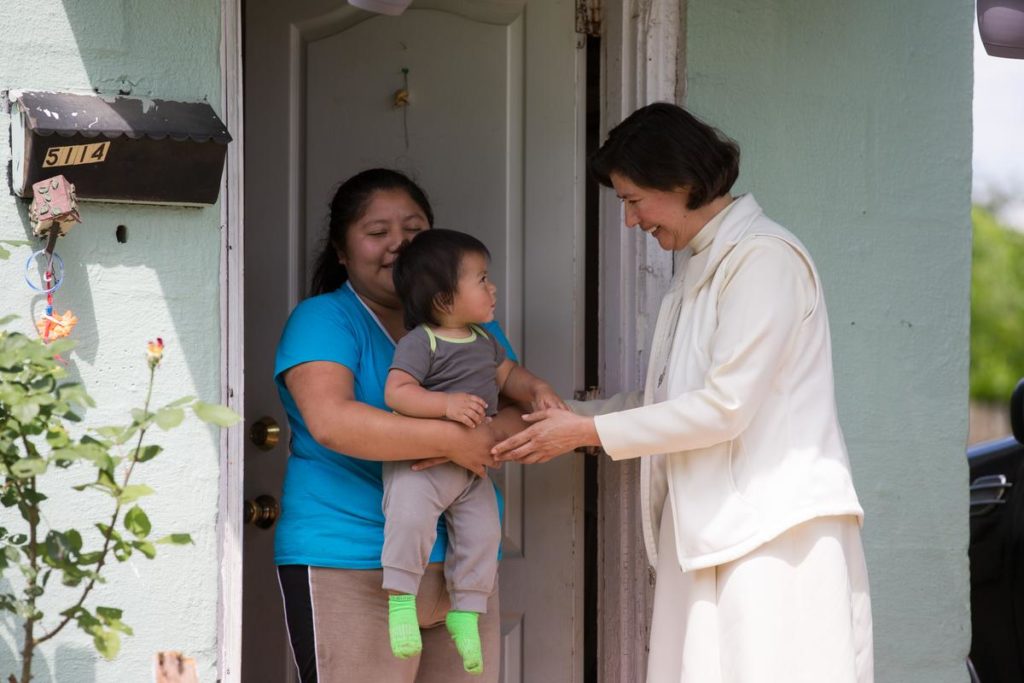
She said,
Some of us were the first in our family or even in our village to receive a university education.”
She continued, “Whether we go to Latin America or serve in the U.S., the impact of the education we received will be felt by every person we serve. A good education helps us connect our mind with our heart.”
Sisters Ana Luisa Chávez Leos, Ana Lilia Mares de Luna and María del Refugio Caldera Monreal, three Teaching Sisters of the Sacred Heart from Mexico, minister in rural northeastern Arkansas.
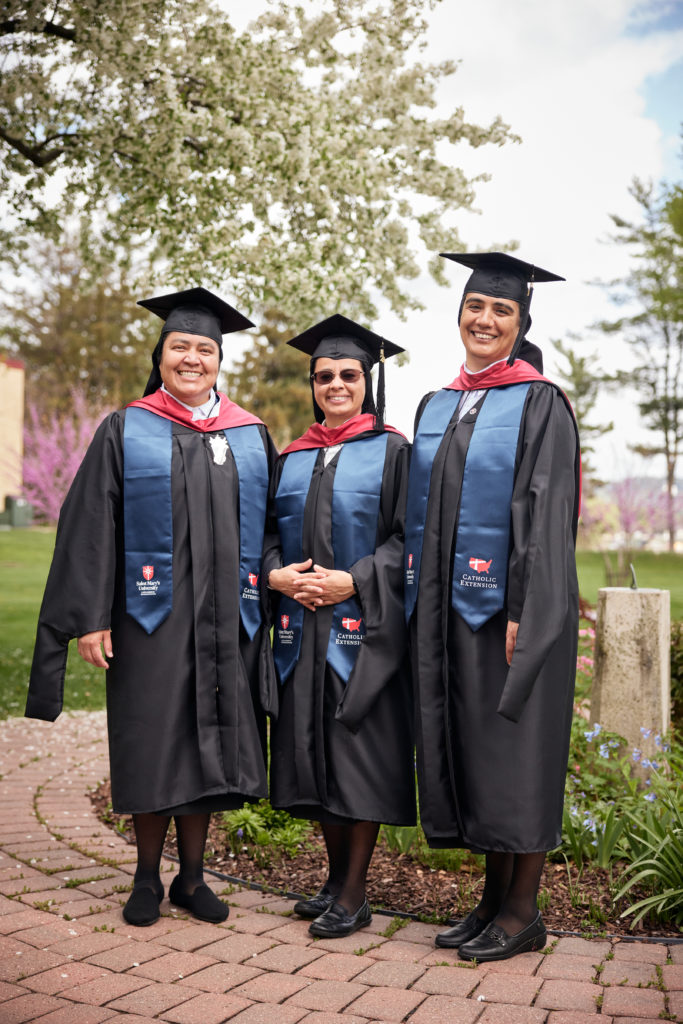
In the towns of Batesville and Newport, they serve the families of people working long hours at grueling jobsites like chicken plants. They often feel isolated, but the sisters re-energize the faith of these families by speaking to their hearts, reminding them of their dignity and God-given gifts. Their influence has led to a significant growth in the two parishes they serve; in the past couple of years, Mass attendance has doubled.
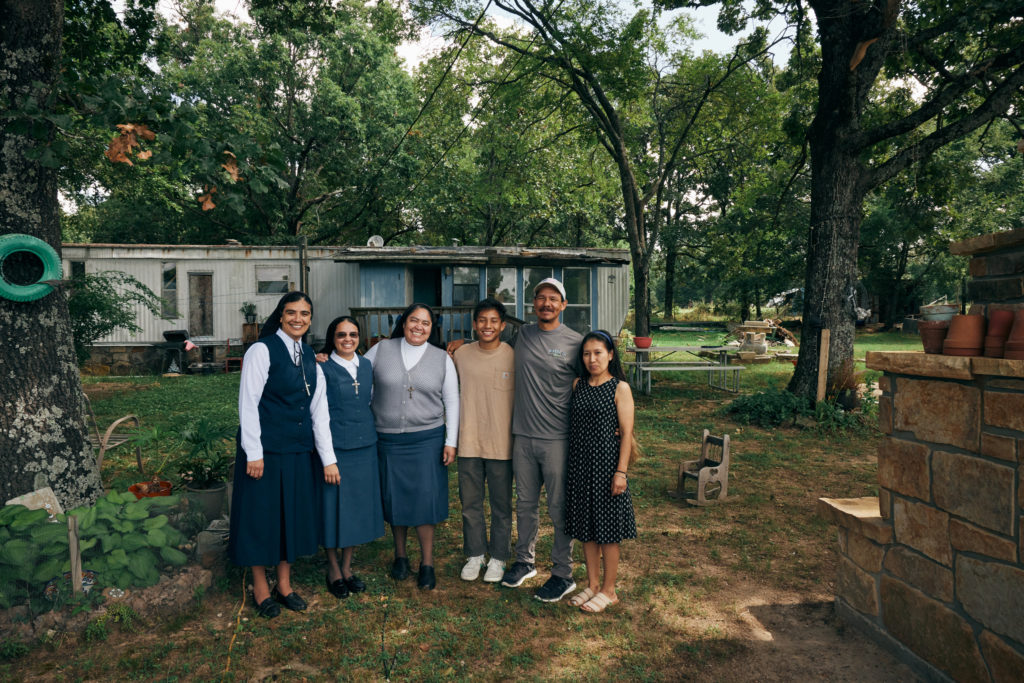
They each earned a master’s degree, and they look forward to putting their newfound knowledge into practice in Arkansas and wherever their future ministries take them.
Sisters Felipa Santos Tapia, Ignacia García Ramos and Guadalupe Martínez Castillo, Missionary Daughters of the Rosary of Our Lady of Fatima, came from Guanajuato, Mexico, to the Diocese of Lexington, Kentucky.
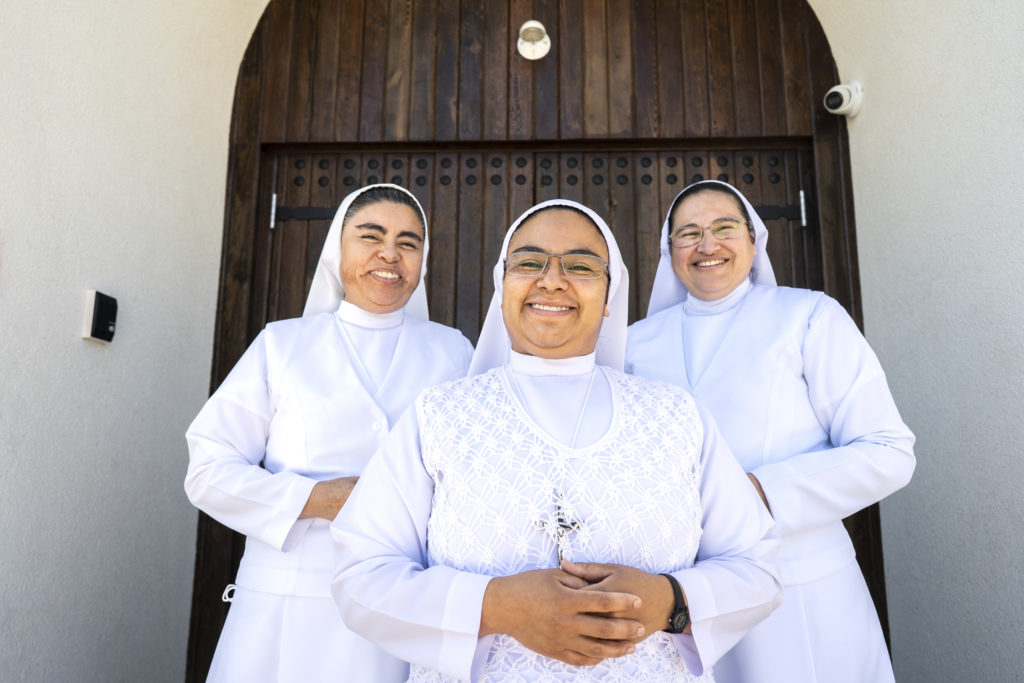
They have been ministering at Centro de San Juan Diego, a center supported by Catholic Extension Society, to provide spiritual care and economic empowerment to nearly 10,000 Hispanic immigrant people in the area.
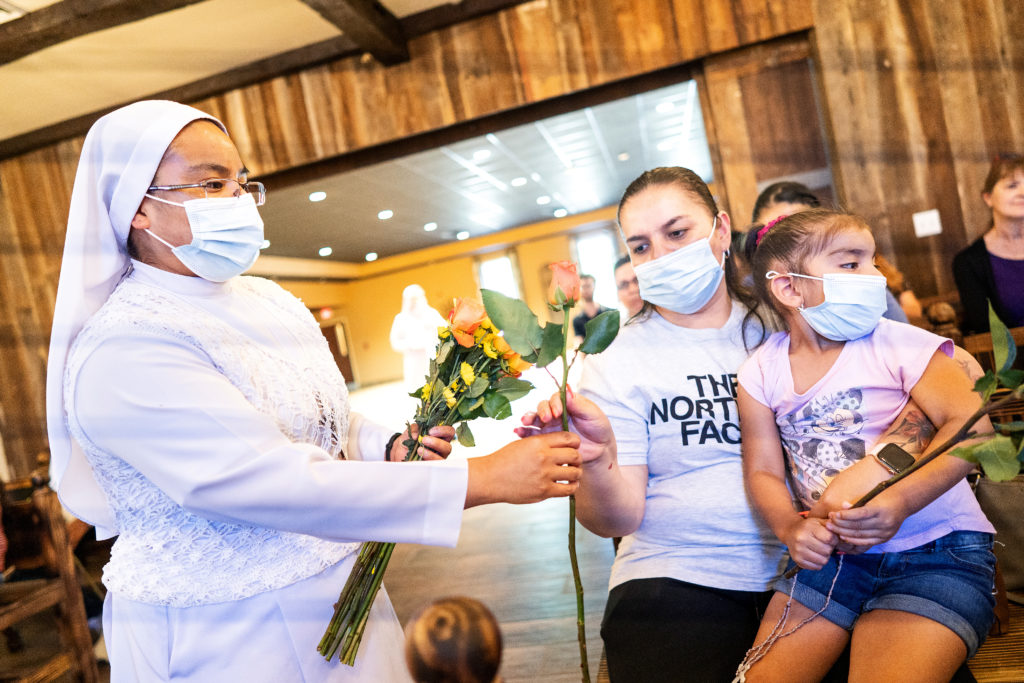
The sisters made a huge success, serving as a welcoming face and bridge to the new site and reaching over 23,000 people. They offered counseling, organized Lenten and Advent retreats, and visited and took Communion to the homebound, sick and hospitalized.
Sister Felipa, (pictured bottom left), said,
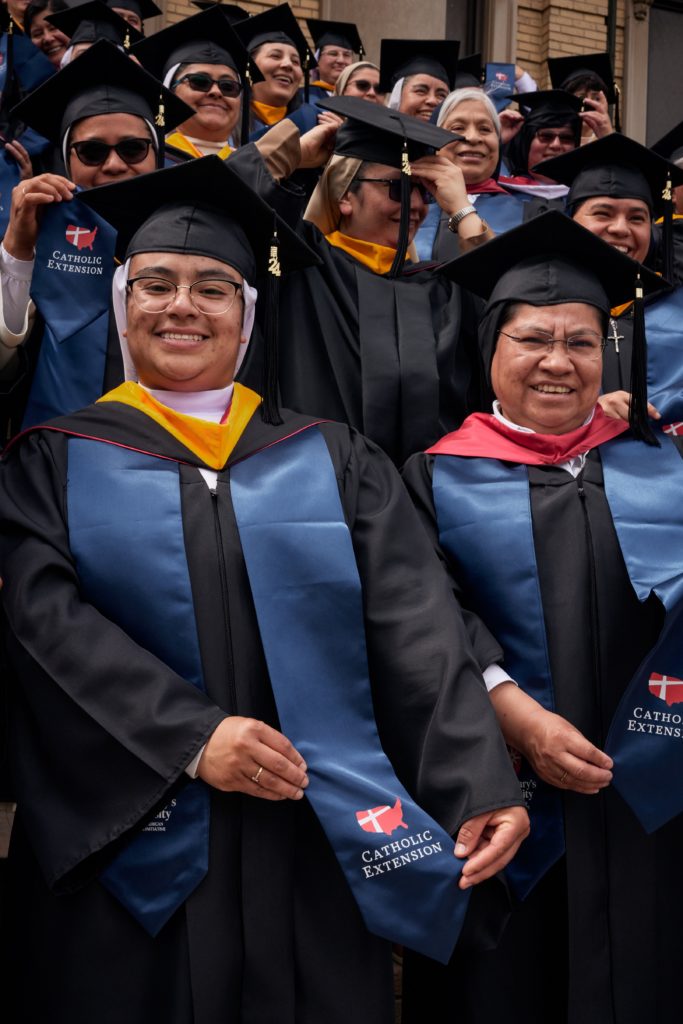
I believe that with the tools I received here based on academic study, I will be able to respond with more certainty to what the world asks of me.”
She continued, “My academic training advanced all areas that we, as consecrated people, are invited to live: the personal, the spiritual, the human area, and the academic area. … We are living in a time where there are many challenges, and they constantly, rapidly and abruptly change. So we have to be prepared to respond to those challenges.”
Sisters Alejandra Austria García, María del Carmen Reuelas Camacho, and Josefina Guzmán Ayala—Servants of the Immaculate Child, Federico Salvador Province—serve in the Diocese of Cheyenne.
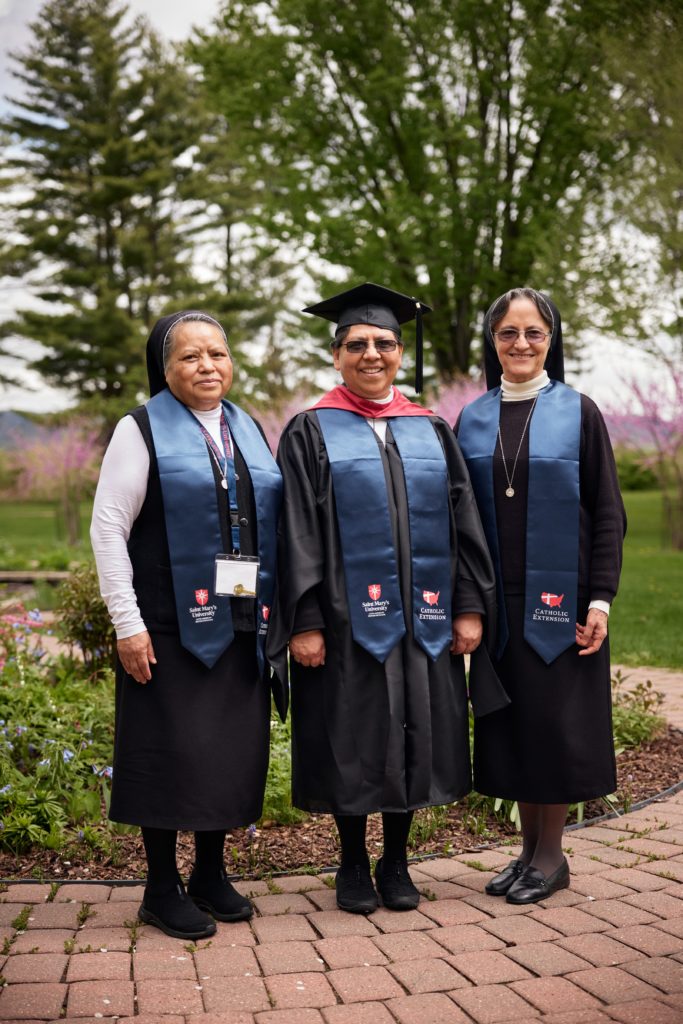
This diocese covers the entire state of Wyoming and struggles to reach communities dispersed over such a vast distance. The sisters were sent to Casper, in the middle of the state, where immigrant families lived in the shadows, in isolation, lacking a social network and safety net.
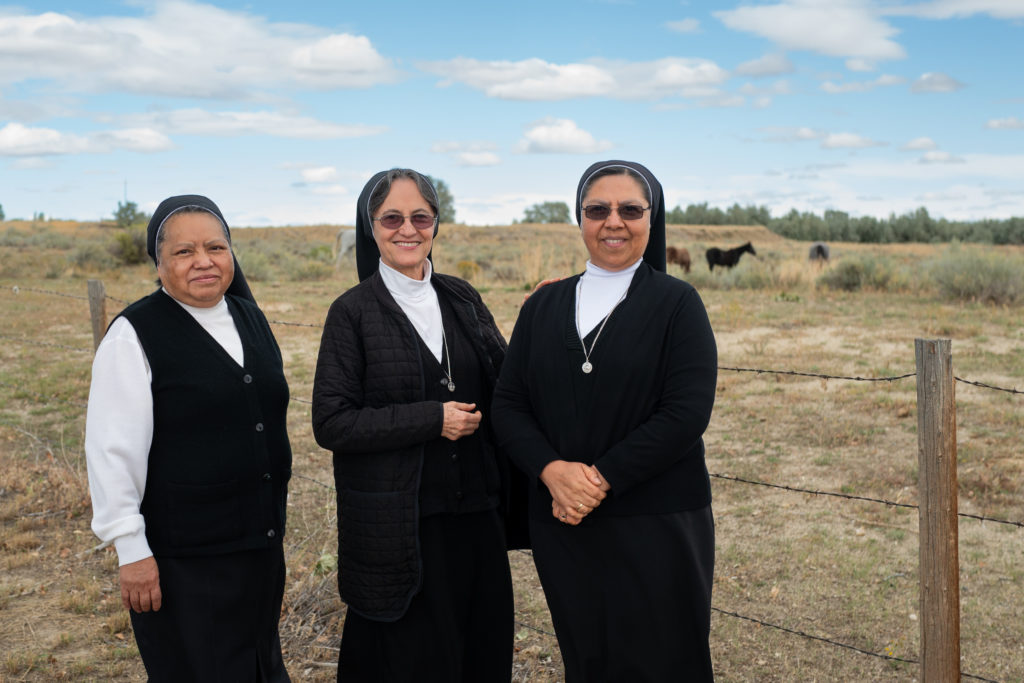
The sisters established an outreach program to encourage families, both practicing and nonpracticing Catholics, to attend evenings of prayer and conversation. Their efforts have drawn many people back to the Church and closer together as a community. They also surfaced and formed new leaders that can carry on their work.
We congratulate these 44 remarkable sisters who keep the Church’s missionary identity alive. They have shown us what a healthy and vibrant Church looks like as they extend God’s compassionate love to the poorest among us.
This story will appear in the Summer 2024 edition of Extension magazine. The U.S.-Latin American Sisters Exchange Program is made possible thanks to the generosity of our donors. Please consider supporting our mission!


